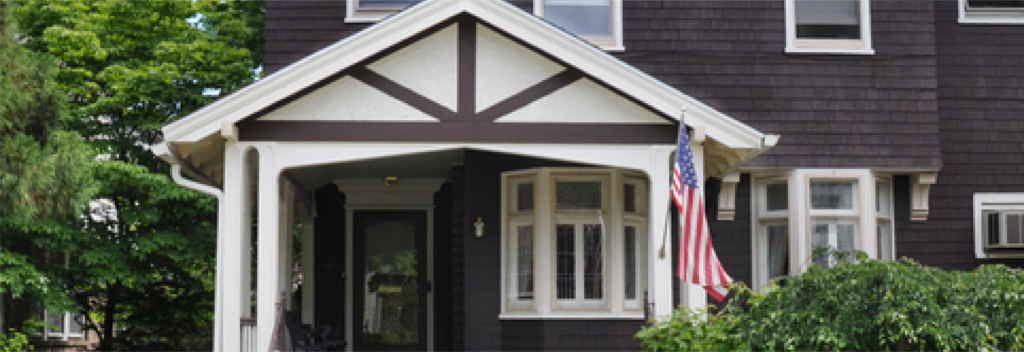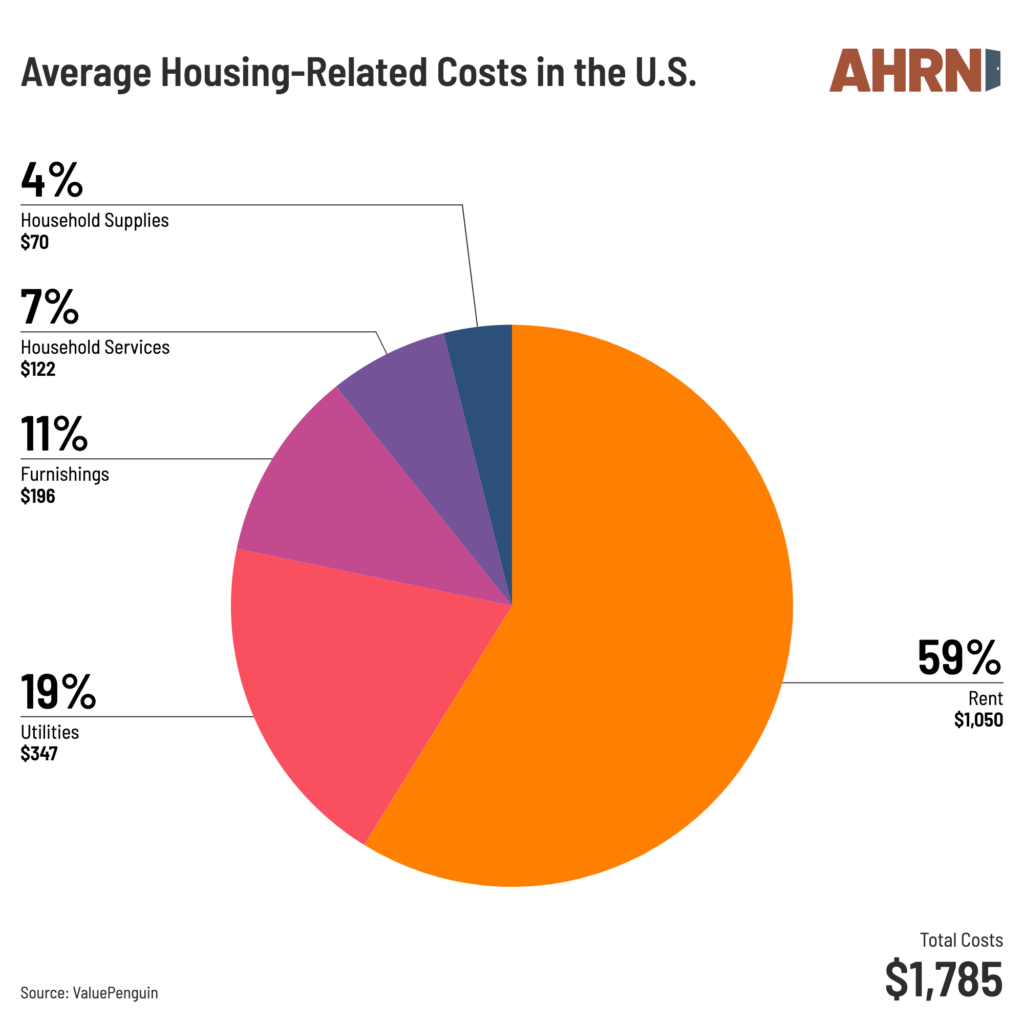BAH Calculator
Living in the barracks or on base has its upsides (and downsides). But it’s nice to have a place of your very own outside the gate.
Unlike civilians who want to rent a home, those in the military don’t have to fret about their rent taking a huge chunk of their paychecks. That’s because the government provides basic allowance for housing, or BAH.
If there’s no available housing on base, or you want to live with a little more independence on the weekends, this valuable benefit ensures you don’t need to pay out of pocket for a roof over your head.
Military BAH rates vary by rank and location, and are designed to cover most to all of your housing costs on the local market.

Key Takeaways
- BAH helps cover most housing costs for service members living off-base, with amounts based on rank, dependent status, and duty station location.
- In most cases, BAH is designed to be roughly equal to 95% of the average cost of renting a home, plus the cost of utilities, in the local housing market.
- 2026 BAH rates increased by an average of 4.2%, though individual rates may vary based on local rental market changes.
- Different types of BAH exist, including Dual Military BAH, BAH Type 2, Partial BAH, and BAH Diff, each serving specific situations.
- PCS moves can impact your BAH, with potential decreases due to lower housing costs at the new station, changes in dependent status, or transitioning from active duty to reserve status.
What Is BAH?
BAH stands for Basic Allowance for Housing.
All active-duty personnel are eligible and will receive a stipend calculated to cover approximately 95% of the costs associated with renting a home. Guardsmen and reservists are also eligible for BAH while on active duty under certain conditions.
Your BAH money will be added to your monthly pay to cover the average monthly rent and utilities for military members living off-base.
How Is BAH Calculated?

There are a few key factors that go into how much BAH you will receive:
- Your rank – higher rank gets more BAH
- Whether or not you have dependents – those with dependents receive more BAH
- The average rent around your base – based on average rental costs near your assigned station for PCS
Use AHRN’s BAH Calculator to find out how much you will receive each month.
NOTE: BAH rates are based on the average cost to rent a home, not the average cost of home ownership. In some markets, a BAH allowance that is more than enough to cover monthly rent may not be enough to cover a mortgage payment, at least without a substantial down payment.
This can be an issue in some more speculative housing markets, such as Hawaii and San Diego. However, in other areas, BAH allowances may allow you to live comfortably and potentially enable you to turn your home into a rental property when you PCS to your next duty station or leave the service. This allows you to take advantage of BAH from service members who come after you.
Types of BAH
BAH comes in several different types: BAH, BAH Type 2, Dual Military, Partial BAH, and BAH Diff. In this section, we’ll take a closer look at each of them.
BAH Type 1
This is the standard location-dependent BAH that most service members are familiar with. It’s calculated based on your rank, location, and whether you have dependents (i.e., a spouse or children). Married service members and those with children who live off-post receive more BAH than single, childless service members.
BAH Type 1 Examples
- San Diego, CA (ZIP 92101): An E-5 with dependents receives $3,987/month
- Fort Benning, GA (ZIP 31905): An E-5 with dependents receives $1,665/month
- Colorado Springs, CO (ZIP 80913): An E-5 with dependents receives $2,340/month
BAH Type 2
While personnel in the reserves or National Guard activated for 30 days or longer receive standard BAH, those activated for 30 days or less receive BAH Reserve Component/Transit (BAH RC/T). It’s also sometimes referred to as BAH Type 2.
Unlike standard BAH, RC/T is based solely on your rank and whether or not you have dependents. Location is not a factor.
BAH Type 2 may not cover the entire cost of a short-term rental. But it will help. Many reserve component members and traveling service members are disappointed to find that BAH Reserve Component/Transit is only a fraction of what they would normally be entitled to under BAH Type 1 rules, especially in higher-cost areas.
This can be especially painful for reservists and Guard members who take a pay cut when they leave their civilian jobs to attend drill.
Dual Military BAH
Dual military BAH is paid to active duty service members married to other active duty service members. In cases where both spouses in a marriage are on active duty, they will both receive the without-dependent BAH rate, based on their rank and location.
If a married couple has children, only one parent (normally the higher-ranking member) will receive the higher with-dependent BAH rate.
Partial BAH
If you’re a service member with no dependents living in government quarters (such as the barracks, temporary on-base lodgings, or base housing), you’ll receive a small fraction of the standard BAH for someone of your rank and location.
BAH Differential
Commonly referred to as “BAH Diff”, this is specifically for active duty service members living in government quarters who pay child support.
The amount is the difference between the BAH of a service member with a dependent and one without.
No Partial BAH Diff Rate
Someone will not receive BAH Diff if the monthly amount they pay in child support is less than the amount of BAH Diff for which they would be eligible.
Tip: If you live in on-base housing and your BAH Diff is $403.80 per month, but your court-ordered child support is $399 per month, speak with your attorney about finding a way to get your child support requirement increased to $404.00. That way, you’ll trigger eligibility for BAH Diff.
If you do nothing, you won’t be eligible for BAH Diff at all.
Can BAH Go Down?
Yes, the official BAH rate can come down in any given location. There are several possible reasons this may happen:
The possible reasons for a BAH decrease include:
- The average rent in the area you are PCSing may have decreased significantly.
- Expected out-of-pocket costs for service members’ rent have increased gradually over the last few years.
- The estimated cost of renters’ insurance is no longer included in the calculation.
- Your dependency status changes (you divorce or a child moves out).
The good news: BAH is “sticky”. That is, once you PCS to a new location and qualify for BAH Type 1, you’re normally protected against future BAH rate declines so long as you remain at that duty station.
Example:
- You PCS to Hawaii, and qualify for BAH of $1,500 per month.
- The following year, the official BAH rate for your zip code decreases to $1,400 per month.
That new, lower BAH rate affects new people PCSing into your duty station and zip code. But it doesn’t affect you. You’re effectively grandfathered in, as long as you maintain uninterrupted eligibility, thanks to individual rate protection.
OCONUS Moves and Overseas Housing Allowance
As you may have guessed by the name, Overseas Housing Allowance (OHA) is the BAH equivalent for service members who live off-base while stationed outside the 50 states.
If you’re on active duty and stationed outside the 50 U.S. states, including U.S. territories and possessions like Guam, Samoa, and the U.S. Virgin Islands, and you are not furnished government housing, you are eligible for OHA based on your dependency status.
Note: Although Alaska and Hawaii are considered OCONUS moves, they qualify for BAH, not OHA. For example, those stationed in non-state United States territories, such as Guam, receive OHA rather than BAH.
MIHA
In addition to covering rental and utility expenses, OHA may also include an initial Move-In Housing Allowance (MIHA). This helps offset the initial expenses of relocating outside the US. For example, MIHA covers things like:
- Light fixtures, wardrobes, or appliances that aren’t provided by the landlord
- Initial connection fees for utilities
- Currency conversion or agent fees related to the lease
MIHA itself has three components:
- MIHA/Miscellaneous – general move-in costs (flat rate by country)
- MIHA/Rent – covers one-time rental fees required by foreign landlords (like agent or key fees)
- MIHA/Security – reimburses for required security enhancements (bars, locks, etc.)
When you arrive at your overseas station, check in with your nearest housing office to apply for your OHA and any MIHA reimbursement you may be entitled to.
If your base does not have such an office, check with your commanding officer or the S1/G1/J1 shop.
OHA Calculator
Just like BAH, a few attributing factors determine how much OHA you receive:
- Your rank
- Whether or not you have dependents
- The average rent of your station location
Like BAH, the DTMO offers an up-to-date OHA calculator. This way, you can see exactly how much your payments will be at any eligible location worldwide.
GI Bill BAH: Monthly Housing Allowance for Veterans
BAH isn’t just for service members on active duty. If you’ve been honorably discharged from active duty and are going to school part-time, you may still qualify for the Post 9/11 GI Bill Monthly Housing Allowance.
Since 2009, Congress has authorized a version of BAH for military Veterans enrolled full-time at qualified institutions of higher learning. The Monthly Housing Allowance (MHA) helps all Veterans attending school on the GI Bill receive funds to offset the cost of rent, just as they used to on active duty.
All full-time graduate or undergraduate students, as well as eligible Veterans, receive payments for every month they are actively enrolled in school. So, you don’t get them during months you’re not in class.
The monthly amount was previously based on the zip code of your school’s official address, but it’s now based on the average rent in the zip code where the majority of your classes are actually held. The rate is set at the same level as an E-5 with dependents in that location, regardless of your family status or most recent rank.
Eligibility
You may be eligible for Post 9/11 GI Bill benefits if you satisfy at least one of these criteria:
- You served at least 90 days on active duty (either all at once or with breaks in service) on or after September 11, 2001, OR;
- You received a Purple Heart on or after September 11, 2001, and were honorably discharged after any amount of service, OR;
- You served for at least 30 continuous days (all at once, without a break in service) on or after September 11, 2001, and were honorably discharged with a service-connected disability, OR;
- You’re a dependent child using benefits transferred by a qualifying Veteran or service member
FAQs
Can I Collect BAH and Buy a Home Using the GI Bill at the Same Time?
If you’re on active duty, you’re entitled to Basic Allowance for Housing as long as you’re authorized to live off base and you are not occupying government quarters.
The Department of War (formerly the Department of Defense) doesn’t care how you use the money, or whether you buy, rent, move in with Uncle Buck, or live in a van down by the river! The money is yours to use however you choose.
Many service members use their VA home loan to purchase a house while continuing to collect full BAH each month.
Can I Pool My BAH With Active-Duty Roommates?
Yes. If you and all your roommates are authorized to live off base, you and multiple roommates can all move into one home, split your living expenses, and each of you can collect your full BAH rate.
In fact, this can be a great way to save money for an eventual down payment on a home, or to have the cash to start a business when you leave the service.
Can I Collect BAH and Live in a Van or RV?
Yes. Again, as long as you are authorized to live off base and you aren’t occupying government housing, and you’re on active duty, you’re eligible for BAH. You can collect the full amount, live in a 1968 Volkswagen camper van, shower at the gym, and pocket the difference.
Your command may require you to provide a physical address for the recall roster. But there’s no requirement that you live in a permanent, stationary structure to collect BAH.
Is BAH Taxable?
No. BAH is not subject to state or federal income tax, nor to FICA taxes. You don’t need to report it as income on your individual income tax return. Just like hostile fire pay.
Conclusion
BAH allows service members to live off-base without depleting their savings whenever rent is due.
It means you and your family never have to weigh the downsides of living or waiting for an opening in base housing against the costs of living on your own, so you don’t have rent costs to worry about when moving.
Now you can focus on other things while settling into your new home, such as learning about your new base, what the weather will be like, where the best schools are, and where to find good food.


